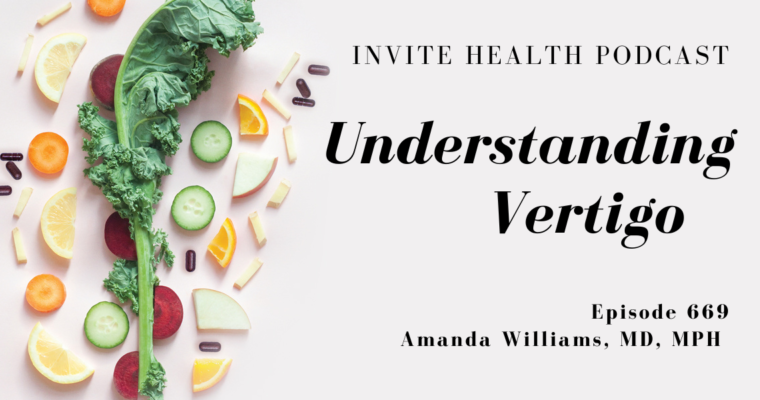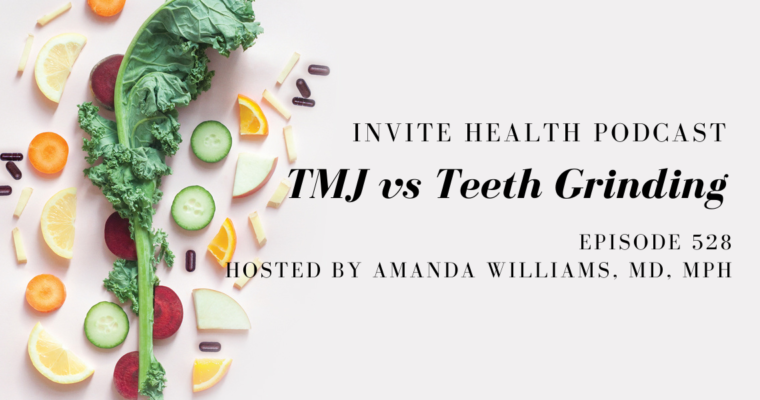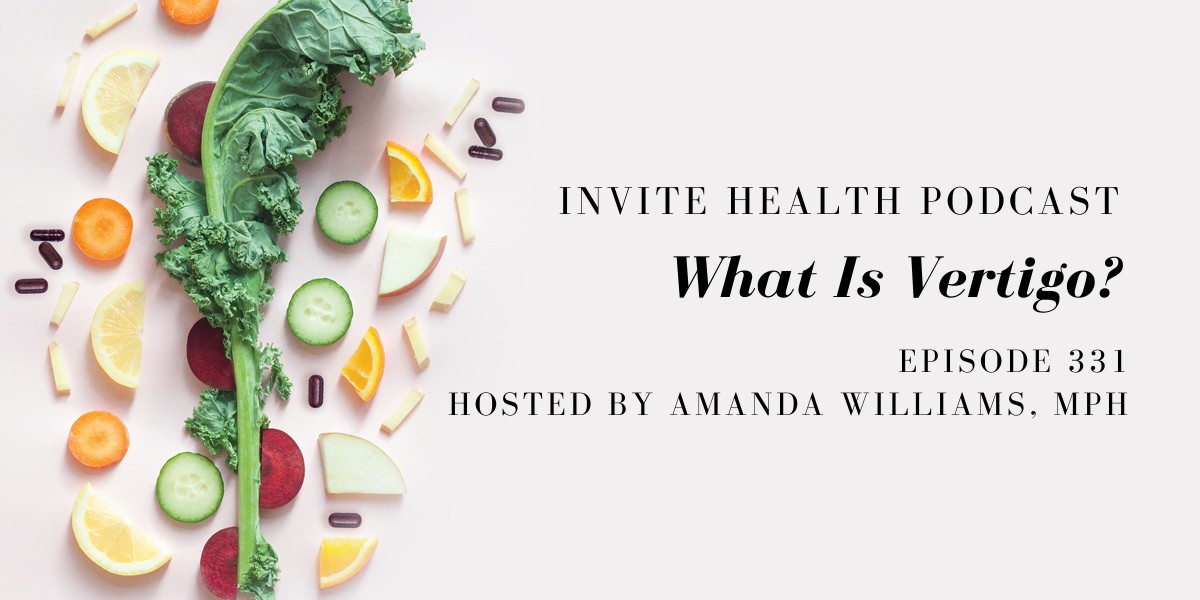vertigo
Invite Health Podcast, Episode hosted by Amanda Williams, MPH
Subscribe Today!
At some point in your life, you’ve probably experienced something you’ve described as feeling dizzy. You may have also heard of vertigo, which many people describe as a sensation of dizziness.†
The different types of dizziness
Dizziness falls into four different categories. It can be vertigo, presyncope, equilibrium or lightheadedness. Vertigo itself is incredibly common, as well as incredibly problematic for anyone who has ever experienced it. It is a very unpleasant feeling where you feel like the room is spinning or like everything is very, very off.†
Estimates show that about 40% of American adults will experience vertigo at some point in their lives. Women are significantly more at risk for the development of this issue than men. This can come down to hormone differences. There are also certain neurological conditions that can cause vertigo, such as multiple sclerosis (MS), a stroke and migraine headaches.†
MANY STROKES ARE PREVENTABLE – INVITE HEALTH PODCAST, EPISODE 72. Listen Now>>

How to help with vertigo
Many times, vertigo will resolve on its own, but for some people, this can be a long-term, lingering problem that can impact their day-to-day lives. There are supplements that can help with this persistent feeling of dizziness. We recognize through scientific research that supplementation with Vitamin D and calcium can be very helpful for the most common form, known as positional vertigo.†
FEELING DIZZY? RECENT STUDIES SAY VITAMIN D MAY HELP! – INVITE HEALTH PODCAST, EPISODE 165. Listen Now>>
Dietary implications also play a significant role depending on the type of vertigo someone is experiencing. Someone who has Meniere’s disease, for instance, may benefit from a low sodium diet. Coenzyme Q10 has also been shown to help offset the dizziness, while ginger root extract has been shown to ease inflammation correlated with dizziness.†
In this episode, Amanda Williams, MPH discusses the different types of vertigo, as well as factors that could potentially cause this issue. She shares information from studies about supplements and nutrients that can help with persistent dizziness, as well as her own personal experiences with it.†
Key Topics:
- People who are predisposed to symptoms of dizziness
- The link between low Vitamin D levels and dizziness
- What role do medications play?
- The impact of hormones







